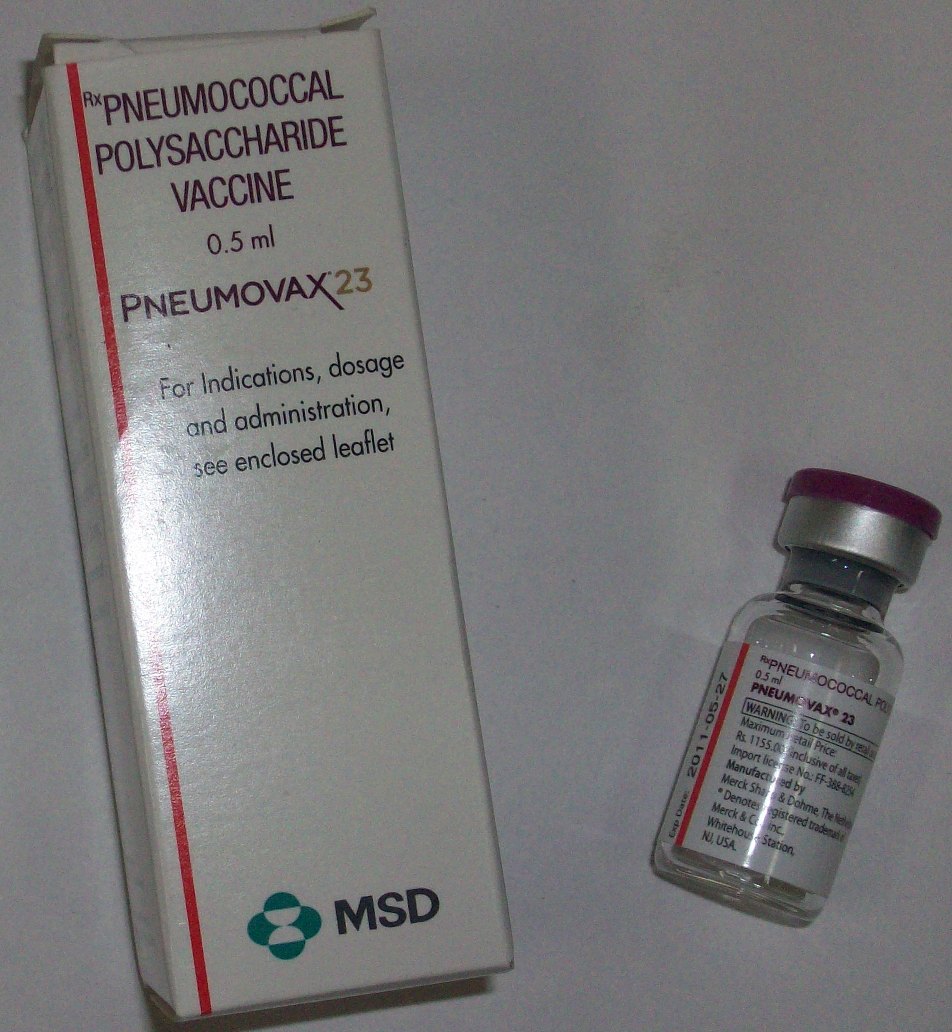Pneumovax
Pneumococcal Polysaccharide Vaccine (23-valent)
Details
Pneumococcal Polysaccharide Vaccine (23-valent) prevents a certain bacteria called Streptococcus Pneumoniae from entering the body. This bacteria can lead to serious infections like bacteria in the blood, meningitis among others. Pneumovax is the universal brand name of this vaccine by which it is available in the pharmacies.
Purpose:
Pneumococcal Polysaccharide Vaccine (23-valent) helps in protection against:
- Ear infection
- Sinus infection
- Bacteremia
- Pneumonia
- Lung disease
- Alcoholism
- Sickle cell anaemia
- Kidney disease
- Liver disease
- Spleen problems
Mechanism:
This vaccine is injected into a muscle which has similar proteins as that of Streptococcus Pneumoniae bacteria. By doing so, our immune system gets familiar with this particular type of bacteria and forms antibodies to fight against it.
Dosage:
- Pneumovax is meant for the individuals ageing 3 to 64 years.
- One dose of 0.5ml is recommended for effective results.
- If you’re younger than 65 and still at a high risk of getting infected by Streptococcus Pneumoniae bacteria, a second dose should be given but only after 5 years of the first dose.
Side effects:
This vaccine may cause several side effects including:
- Joint ache
- Swelling
- Hard lump
- Redness, rashes, itching, and swelling
- Nausea
- Vomiting
- Ringing in the ears
- Vision changes
- Serious effects of the Pneumovax vaccine can be swollen glands, tingling, or numbness of hands and feet. If these reactions are experienced, consult your physician right away.
Precautions and measures:
- Pneumococcal Polysaccharide Vaccine (23-valent) should be administered at least 2 weeks prior to chemotherapy, spleen surgery, or any other treatment that weakens your immune system.
- It should not be used for children under 3 years of age.
- Pneumovax does not replace the requirement of penicillin prophylaxis against the protection from pneumococcal infection.
- People who have skull fractures, cerebrospinal leakage resulting from congenital lesions, or any neurosurgical procedures might not see too much of the positive effects of this vaccine.
- Store it at room temperature.
- Caps of prefilled syringes contain rubber latex, which can cause an allergic reaction in some individuals.
- Shake the syringe well before use.
- Use a proper and fresh needle, to fill the injection.
- Do not mix the Pneumococcal Polysaccharide Vaccine (23-valent) with other vaccines in the same syringe.
- It can be injected subcutaneously or intramuscularly into the lateral mid-thigh or into the deltoid muscle.
- Do not inject it intradermally or intravascularly.
Interactions:
There are some treatments that might interfere with the effectiveness of this vaccine which are: tacrolimus, corticosteroids such as prednisone, chemotherapy, or cyclosporine among others.
